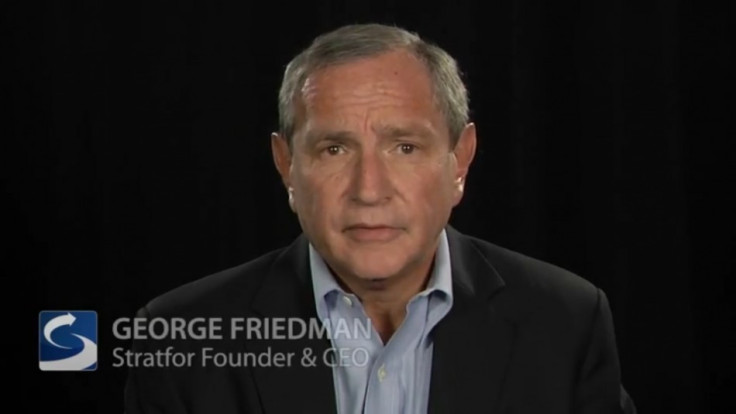WikiLeaks: Is Stratfor the CIA for the 21st Century?

Stratfor's emails leaked on WikiLeaks have revealed the inside story of how intelligence companies work in the US.
Founded in 1996, Stratfor emerged as an intelligence firm of global importance after 9/11 and the war on terrorism. Commonly referred to as the private CIA, the company has 300,000 subscribers and over two million recipients of free email updates. It has been cited as an authoritative source on intelligence issues by CNN, Bloomberg, AP, Reuters, The New York Times and the BBC.
The Global Intelligence Files released by WikiLeaks shed light on the different methodologies used by Stratfor and revealed a shift of power in the highest levels of intelligence leadership in the US.
In particular, an email by the company's chief intelligence officer, financial overseer and CEO George Friedman explained in more than 1,000 words the importance of Stratfor in the eyes of the government.
A former political science professor, Friedman has a long track record of working on matters of security and defence with the American military. He founded Stratfor in Austin, Texas, based on a neo-conservative ideology.
Born in Hungary to Holocaust survivors, Friedman was raised in the US, where his family found asylum to escape the Communist regime. He describes his family's story as "a very classic story of refugees making a new life in America."
In the aftermath of the collapse of the Soviet Union, Friedman forecasted a US-Japan conflict and co-authored The Coming War With Japan. Another 2004 book, America's Secret War, is an ambitious take on US' global war against terrorism, from Afghanistan to Iraq.
Friedman has routinely stressed the gravity of al-Qaida's threat to the Western world. Stratfor's forecast report between 2005 and 2015 investigates mainly the conflict between the US and the "Islamist menace".
In 2004, Friedman explained to his analysts and executives his hardline approach to intelligence work and criticised the CIA model of analysis following the firing of deputy director of intelligence Jamie Miscik.
She was officially sacked for "squandering resources on day to day reports while ignoring the broad trends".
Friedman said in his email: "My charge against her was and remains that she took no pride in her craft and turned intelligence into PR and shoddy process. She and her gang are now history."
He said the CIA model of analysis had been invalidated and that "a robust, visionary, courageous analytic system" needed to replace CIA's "ponderous, process-driven machine" that could handle only small incidents.
"Stratfor has the opportunity to show the way," claimed Friedman. "In fact, we are showing the way."
"They are looking for new models and they are looking at us," he said of the CIA. "This will not only be good business, it will serve our country. They will be a road map to the craft of intelligence... It is Stratfor's chance to make intelligence history and build a major business at the same time."
Another email by Stratfor vice-president Fred Burton reinforces the thinktank hype. Burton was a special agent with the US Diplomatic Security Service and was hired by Washington to investigate the killing of Israeli prime minister Yitzhak Rabin, the assassination of Rabbi Meir Kahane, and a number of bomb threats prior to 9/11.
Writing to analyst Korena Zucha about Bolivian President Evo Morales, Burton complained about US foreign policies in contrast to its "glorious" past.
"Back in the day, we would have been planning his [and Venezuelan president Hugo Chavez's] helicopter 'accident,'" he wrote. "Guess I'm getting old."
In the same email, Zucha called Morales a "4th-grade-educated, narco-trafficking, murderous thug" whose actions were protected by the "left-leaning MSM [Mainstream] media".
Stratfor has clients among US federal agencies including the Department of Homeland Security, the US Marines and the US Defence Intelligence Agency.
"We objectively acquire, organise, analyse and distribute information," Friedman said. He denied the company engaged in any kind of covert spying for corporations or government agencies.
But WikiLeaks' emails dump raises uncomfortable questions over this "shadow CIA", that may have shoved the old-fashioned espionage of the CIA and J Edgar Hoover's FBI into retirement.
© Copyright IBTimes 2025. All rights reserved.





















